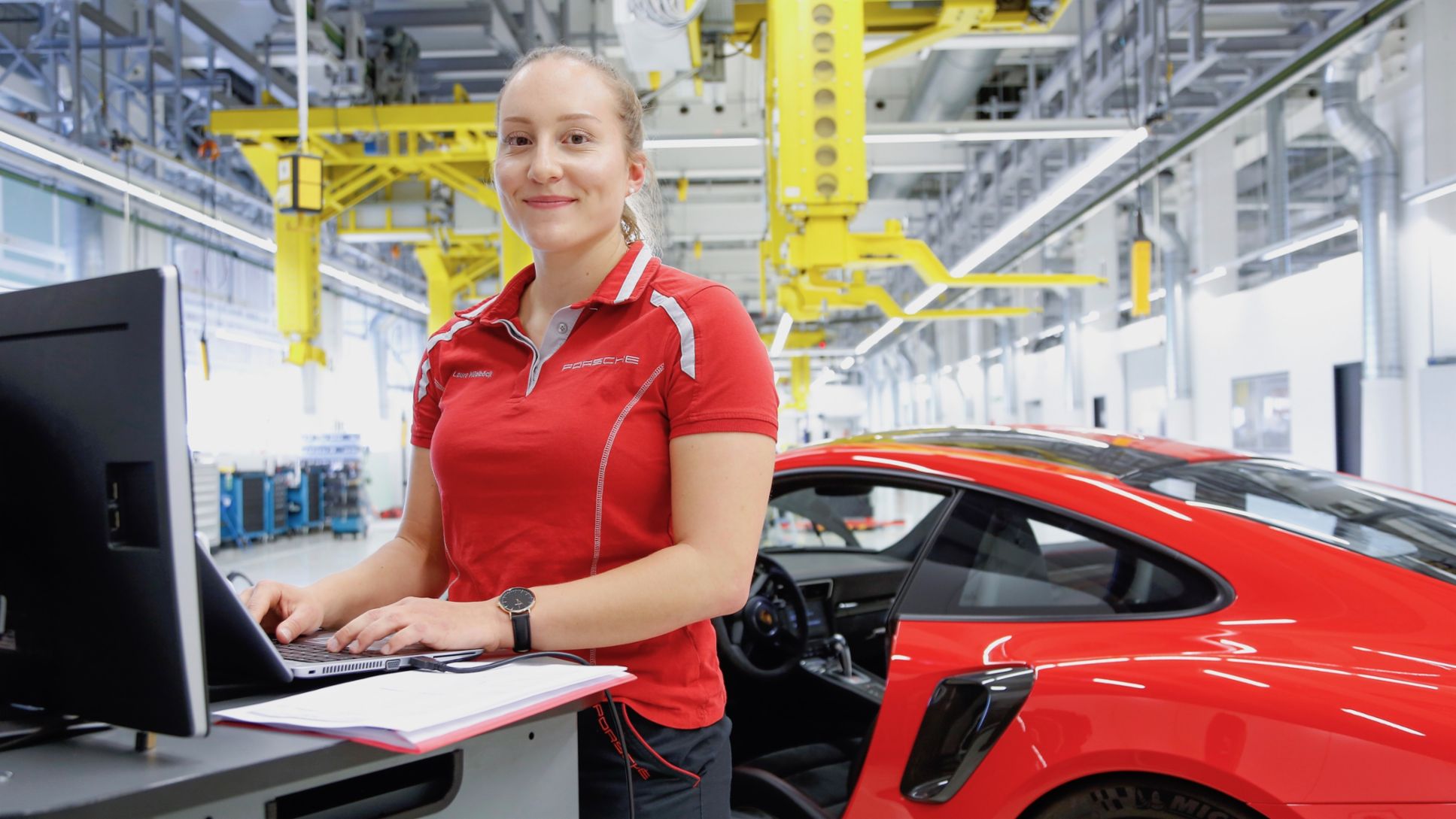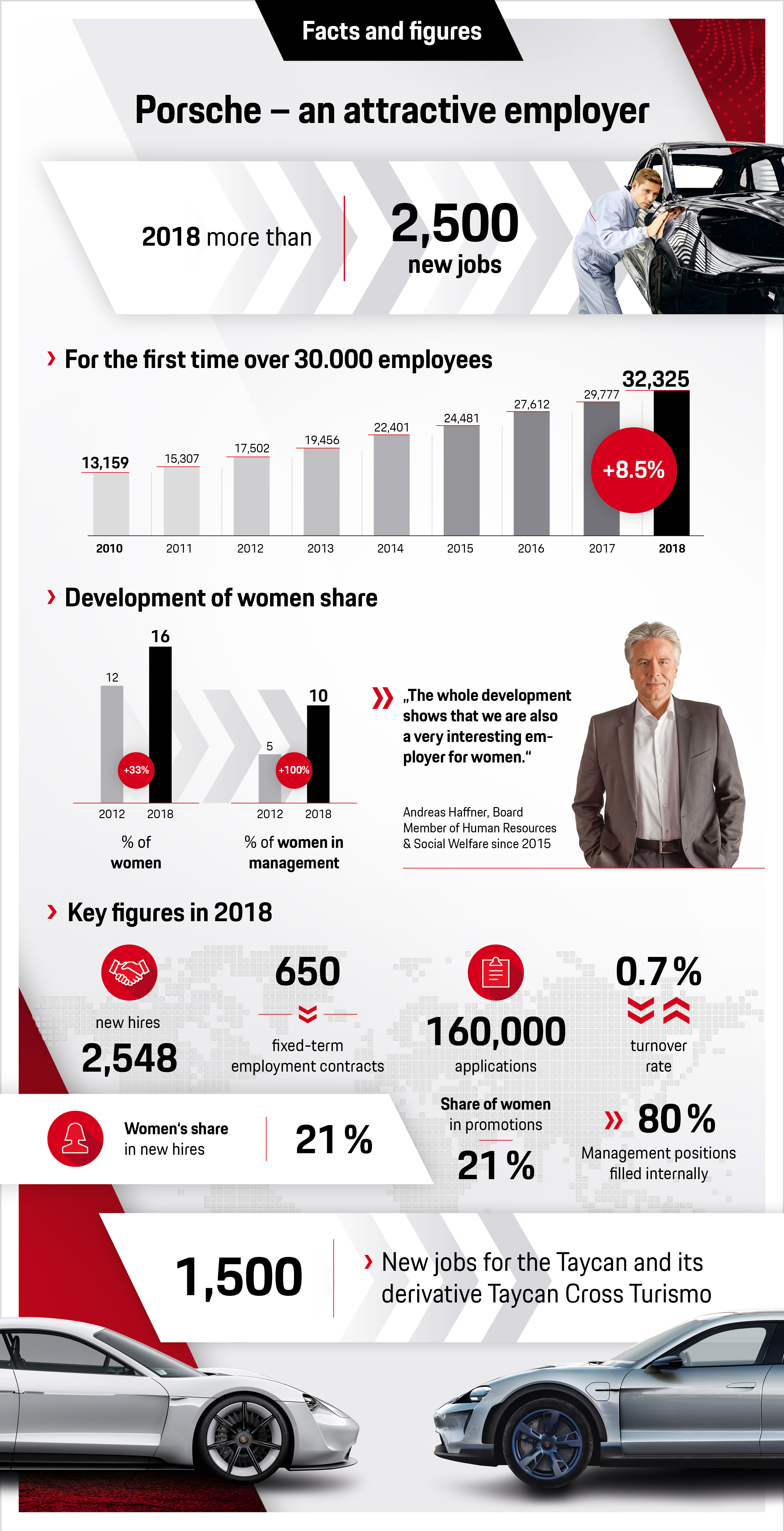At the end of 2018, 32,325 people were employed across the Group, constituting an increase of 2,548 employees, or 8.5%, compared to the previous year. Within this, a particularly encouraging aspect can be identified in the transfer of more than 650 colleagues from temporary to permanent contracts; a change which has been enabled by the continued positive business trend. And there’s no sign of that growth stopping. Over the next few months the company is intending to hire upwards of 1,000 skilled employees just to build the Taycan and its derivative Taycan Cross Turismo, both of which are the first electric sports cars to come out of Zuffenhausen. Production of the Taycan will generate 1,500 new jobs in total. 160,000 applications and a fluctuation rate of 0.7 percent in 2018 also show that the attractiveness of Porsche as an employer continues.
The sports car manufacturer has almost doubled its workforce since 2012, with millennials (born between 1980 and 1995) or even younger vintages making up over 50% of current Porsche employees. A crucial strategic goal for the company is to increase the proportion of women in the entire workforce: where this figure was just 12% in 2012, it is now at approximately 16%. “The number of women in management positions has tripled in this period. This overall growth shows that we are a very attractive employer for women and indicates that we are pursuing the right strategy for employee development,” comments Andreas Haffner, Member of the Executive Board responsible for HR and Social Affairs at Porsche.
This strategy is all about equal opportunities, and fixed parameters for promoting women are enshrined in the target agreements for executives across all executive departments. The defaults are based on the proportion of women in the upper salary bracket in each department, and help to ensure that the promotion policy is fair to women and men. Haffner continues, “If we are going to get more women into management positions, we must consistently fill the pipeline.”
Training is the first step to achieving this, and already the share of female trainees undertaking technical training has increased from 6% to almost 30% in the last few years. The next step is targeted recruitment of skilled female employees. It was possible to recruit women to at least 21% of positions available in 2018. The systematic increase of women in the overall workforce brings about a desirable long-term effect, reflected in the fact that 21% of the promotions awarded in last year’s management-level promotion exercise went to women, where this figure was just 5.5% in 2012.
New record: Porsche received 160,000 job applications in 2018
On the whole, Porsche successfully boosted its attractiveness as an employer even further in 2018 – there are numerous employer rankings confirming this, not to mention a record-breaking 160,000 job applications received. The 2018 employee opinion survey also highlights the popularity of Porsche as an employer: 94% of employees stated that they consider the sports car manufacturer to be an attractive employer. “Our employees are very happy working with us and strongly identify with the company and its products,” says Haffner, pointing out that “the extremely low staff turnover rate well below one percent” is further evidence of this. Of course, the fact that Porsche oversees employee development from top to bottom as part of the “lifelong learning” concept also plays a role in its popularity as an employer. The success of this concept is easy to see: in 2018, the sports car manufacturer once again filled around 80% of management positions from its own employees.




